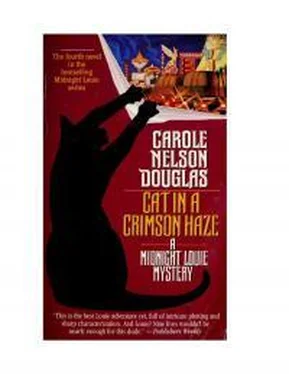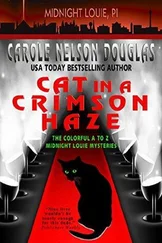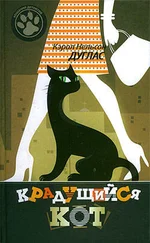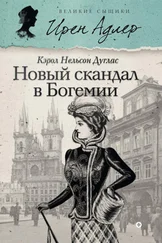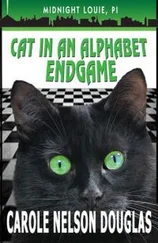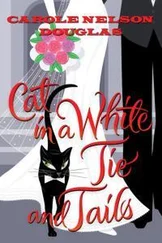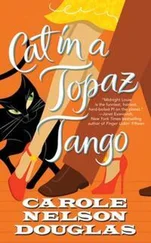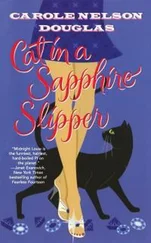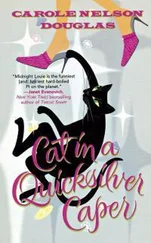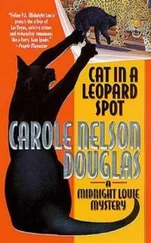"I don't know if I'm in the running."
"Oh, she likes you."
"And I like her, but I don't know if I want to be in the running in the way you mean."
Molina shrugged. Clearly, she didn't believe him.
"You're a wonderful vocalist, by the way," he said.
"I sing a little."
"What you do isn't just singing, it's art."
"Thanks, but I don't have much time to rehearse and less time to perform. Most people don't know I do it,"
"Not even one of your co-workers?"
Molina's laugh was as rich as her contralto singing voice. "Cops could not care less about scat and all that jazz. The Blue Dahlia is the one place they'd never find me. But you've changed the subject, very smoothly. Since you're dictating the place for this interview, I'll direct the subject."
"What subject have I changed?"
"What it's like to be an ex-priest."
"That has nothing to do with this meeting,"
"Maybe not. But I'm the judge, remember? And I like to know milieus,"
"While keeping your own secret."
"Investigator's privilege"
"You grew up Catholic; you can guess what it's like."
"Guesses don't cut it in my game."
"Why are you so curious? It's almost personal."
Molina looked down, twisted the ring on her right hand. Matt noticed that it was the only jewelry she wore, that it was large and a trifle garish, though genuine gold. A class ring, meant to announce a school affiliation to all and sundry. Why was it so important to her?
"I'm divorced," she said abruptly. ''You know what that means. A failure. The Catholic Church doesn't allow for failures."
"And I'm a failed priest? Sorry, but I don't feel that way. God called me to the priesthood and God called me to leave. When I left, it was with laicization, if you know what that means."
"No. I never heard much about leaving religious vocations in grade school, only about entering."
Matt smiled. "Me neither. Laicization means that I was officially freed of my promises. I didn't just walk away one day. I went through the paperwork as well as the angst. Most ex-priests can't qualify to do that. They feel driven out, in a sense. I don't."
"Then you're bound only by what the average Catholic is?"
"Isn't that enough?"
"A joke." Molina noted his humor, but her smile was pale. "Not for me. I've got Mariah to think of. My ex-husband was a jerk. We're well rid of him. But to the church we're an irregular family."
"Are you so sure? Is anyone at OLG bringing it up to you?"
"No. No one except Pilar, the parish housekeeper. But my family is, in spades. You know how it is in ethnic Catholic communities, the parishioners pride themselves on being holier than the Pope. Every large family--and every family is large if they aren't using birth control--is supposed to provide at least one child for a religious vocation, a nun or a priest. In turn, all their married kids will be fruitful and multiply like lemmings. And stayed married."
"Supposed to's can strangle a person. Sure, I know what you're talking about. Irish, Polish, Hispanic, the dynamic is the same, I don't suppose"--Matt smiled at his inadvertent use of the word in question--"we'll ever see families like we grew up in again. I can't claim that I'm the child tithed to the church, because I was an only child."
"Why?" she asked in surprise.
"My father died when I was an infant."
Matt was treading close to the real point of this meeting, but for now he preferred to play counselor, to learn Molina's mental milieu, so to speak.
He wondered if she knew the tables had turned, if she realized that she was casting him in the role of priest, and herself as troubled parishioner. He could see that someone in her position could hardly unburden herself to her pastor, especially when that pastor was the starchy Father Hernandez.
"Your father died," Molina said softly. "I'm sorry. Sometimes my forever family drives me nuts, but at least they're there."
"Why do you call them your forever family?"
"They're always in your face, your life. They always know better, and there are so damn many of them. No Molina ever heard of the Pill except from the pulpit. Luckily, they're all in L.A."
"That's why you're in L.V."
''Maybe. And maybe, being divorced, and being a maybe-Catholic, I want to warn you. You say you're free. I presume that means free to marry?"
"If I would want to."
"Were you a bad priest?"
"No."
"That's too . . . bad."
"I don't think so."
"In other words, you didn't leave because you broke any vow, or were about to."
"No." He left it at that, and saw that she knew that's where it would stay.
"TelI me something." she asked with sudden animation."How can they do it? The bad priests? I was reared to respect priests and nuns, and I saw a lot of good ones. Some priests liked their liquor too much, or their food, but that was an understandable failing. I . . . we, people then, never suspected that we were sheltering priests who violated their celibacy with women, and men. And children."
"I could tell you that their unconscious needs are so great, and so garbled, that they deny the wrong in what they're doing, but you'd call that psychobabble. I think that some people who set themselves up as religious leaders suffer from a deep sense of unworthiness, of hypocrisy.
Some of them may feel compelled to commit sin so they'll be found out for what they think they are. Look at television evangelists. The abusers probably came from abusive families. How they can stand in church on Sunday and preach, or say mass, is a form of denial I can understand intellectually, but not from the gut. I never had to make that choice.''
"In the seminary, didn't you ever suspect? I mean, with your looks--"
"I got a lot of curiosity, and more crushes." Matt found himself recalling those days almost with nostalgia for his fiercely ingenuous self, who had so readily dismissed the easy admiration of others. "I noticed the crushes from women and girls, of course. I was scrupulous not to encourage them. If another seminarian had tendencies ... I was too naive to notice. We hardly knew what we were and we were there to control biological urges. No, it didn't crop out much in seminary. Once out in the real world, I had developed an invincible shield against
'temptation.' It wasn't hard; I wasn't really tempted, so it was no credit to me."
"You'd be surprised, but I know what you mean. As a woman working in a man's field, I have to create this invisible shield around me. My actions, my clothes are neutral. I don't send any signals, and I rarely receive any. It works."
"Too well, maybe. Your stage persona releases all that subdued femininity, but you're safe up there in the spotlight, still distant, tempting but still untempted"
"As the priesthood was safe for you?"
" I was safe in the priesthood. The world out here ... I don't know."
Matt was amused to see Molina's expression grow gruffly maternal.
"If you're the innocent I think you are, you're not free at all. Just like me. I'm divorced. That means I can't marry again, not in the church. And that means I have to answer to Mariah, whom I've sent to Catholic schools because I want her to have a good, safe education. I would have to justify myself to my family, to the whole damn neighborhood, "if I would want to marry, as you put it so well. Again. As for an affair--" She laughed bitterly. "There goes the neighborhood, and here comes the Bad Mother."
''There are annulments."
''Not everybody qualifies, as you said, or has the patience for the endless paperwork and waiting."
"Do you want to marry?"
Molina laughed again. "Hell, no. With this all-hours job and a child to rear? Not to mention the kind of men I come in contact with. The quandary is theoretical, Mr. Devine."
Читать дальше
